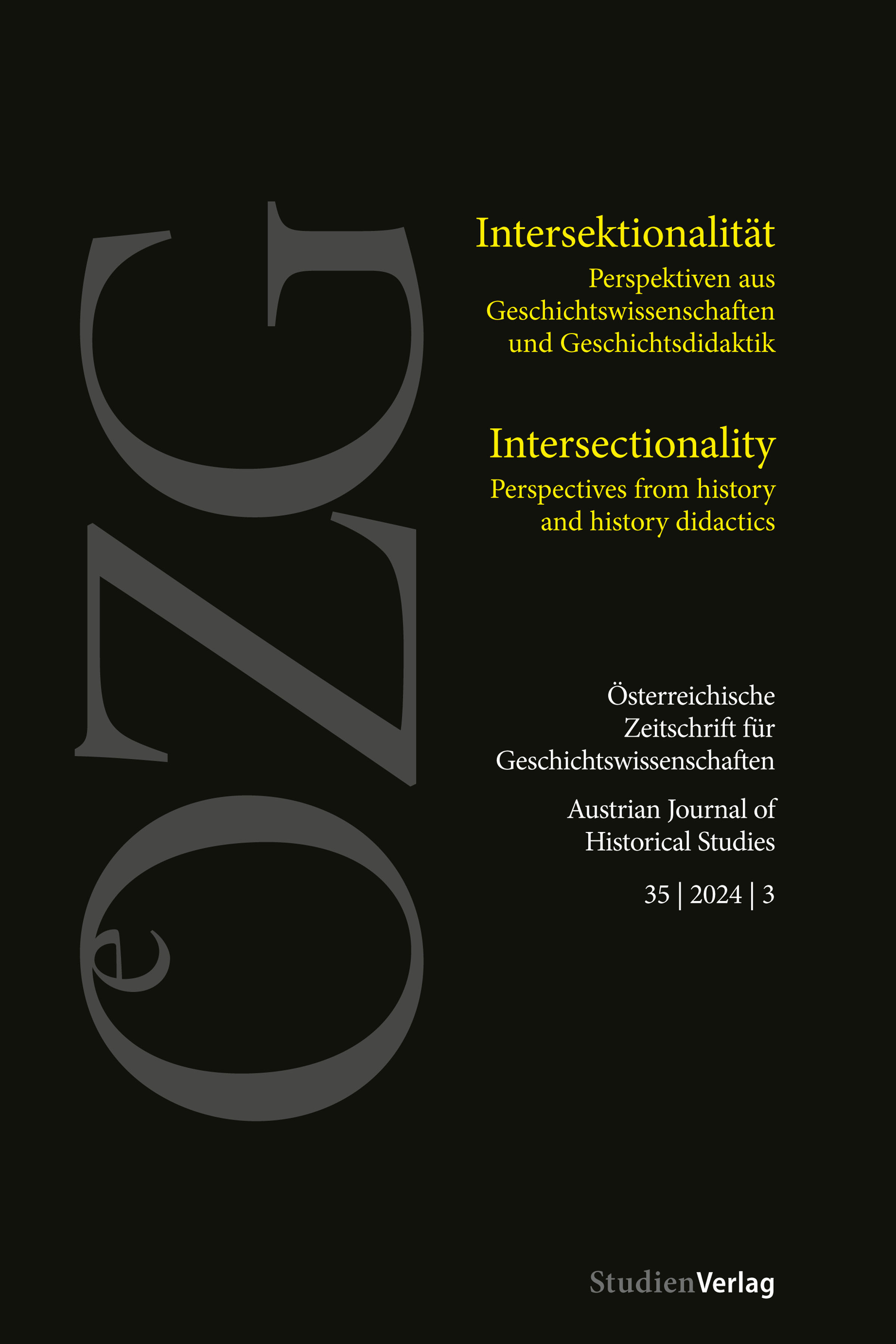Intersectional Perspectives on the Political Self-Understanding of the West German Women’s Peace Movement (1951–1974)
DOI:
https://doi.org/10.25365/oezg-2024-35-3-8Keywords:
peace movement, intersectionality, race, gender, class, Federal Republic of GermanyAbstract
This paper shows how intersectionality adds new perspectives to both German history and the global history of the Cold War by examining the Westdeutsche Frauenfriedensbewegung (West German Women’s Peace Movement, WFFB). It identifies five intersectional categories that shaped the WFFB’s political ideas and activities (gender, class, race, age, religion/ideology). Furthermore, it demonstrates how the WFFB viewed the intersection of inequalities and differences. Intersectional discourse analysis helps situate the WFFB within multiple historical processes such as women’s emancipation, decolonization, and the global Cold War.
Downloads
Published
How to Cite
Issue
Section
License
Copyright (c) 2024 Austrian Journal of Historical Studies

This work is licensed under a Creative Commons Attribution 4.0 International License.


